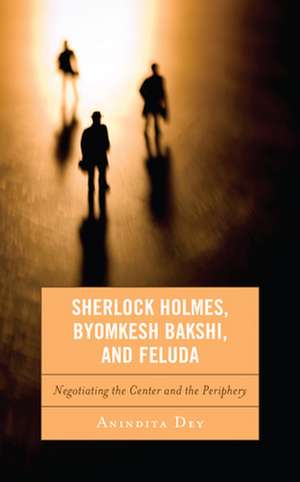Sherlock Holmes, Byomkesh Bakshi, and Feluda
Autor Anindita Deyen Limba Engleză Hardback – 14 dec 2021
Preț: 616.17 lei
Preț vechi: 800.23 lei
-23% Nou
Puncte Express: 924
Preț estimativ în valută:
117.90€ • 123.11$ • 97.36£
117.90€ • 123.11$ • 97.36£
Carte tipărită la comandă
Livrare economică 15-29 aprilie
Preluare comenzi: 021 569.72.76
Specificații
ISBN-13: 9781498512107
ISBN-10: 1498512100
Pagini: 208
Dimensiuni: 152 x 229 x 22 mm
Greutate: 0.48 kg
Editura: Rowman & Littlefield
ISBN-10: 1498512100
Pagini: 208
Dimensiuni: 152 x 229 x 22 mm
Greutate: 0.48 kg
Editura: Rowman & Littlefield
Descriere
The book explores some popular Bangla detective texts to perceive if there are any hegemonic influences of the Holmesian canon-if not, how has identity and existence against imperialism been established is perused. The significance of Indian texts through the leitmotif of indigeneity is foregrounded. Bengaliness resists Anglo/Eurocentrism.
